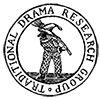During the last 200 years, chapbooks containing the texts of traditional plays have been published in several towns and cities in Great Britain. These have included the Alexander plays published in Newcastle and Whitehaven, the Christmas Rhyme books of Belfast, the Peace Egg plays mainly from Lancashire and Yorkshire, and numerous others. In An Interim Checklist of Chapbooks containing Traditional Play Texts (1976), Preston et al. list over 100 chapbooks still in existence and more than thirty printers are known to have published editions. With so many chapbooks having been published, the question has often been raised of the influence they have had on play traditions. The chapbooks are generally supposed to have had most effect in the North of England where many teams of pace eggers appear to use texts similar to those found in the chapbooks.
This paper presents an examination of the effect chapbooks have had in one area, namely Greater Manchester where eight printers are known to have published editions. One of these, The Peace Egg, or St. George: An Easter Play, was first published early this century by the Rochdale printing firm of Edwards and Bryning. The publication of the chapbook coincided with the presence on the streets of Rochdale of an extraordinary number of teams of children performing pace egg plays. Many of these teams used the text in the chapbook, and some teams from local schools are still using it in the 1980s. This provides an excellent opportunity to study the effect that the publication of the chapbook has had on a single tradition.
